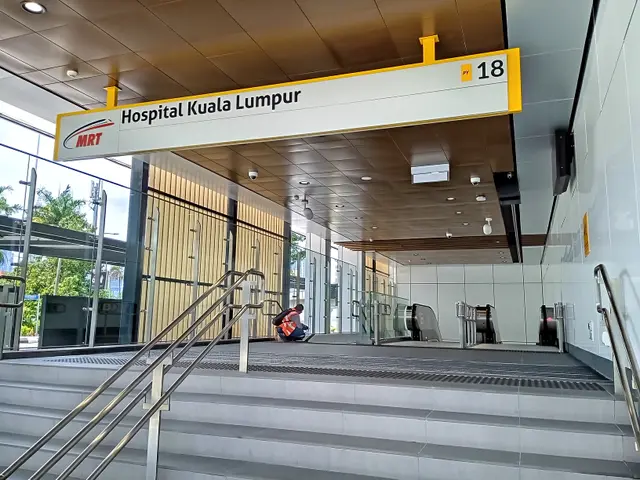Hospital administrations plead for immediate aid and reforms
Waving the White Flag: The German Hospital Association's Urgent Appeal to Stabilize the Struggling German Hospitals
On the sizzling June day of 2025, the German Hospital Association (DKG) ramped up the pressure on the newly formed coalition, pleading for quick action to economically stabilize the beleaguered German hospitals. Dr. Gerald Gaß, the chairman of the DKG board, weighed in with a passionate appeal:
"The new government has finally pledged to equip hospitals with the long-awaited emergency funds. Since the Russian assault on Ukraine in early 2022, our political leaders have abandoned hospitals to face the skyrocketing costs alone, while watching as the chasm between revenue and expenses grew wider and wider. It's high time for us to roll up our sleeves and steer the clinics back to safer waters as swiftly as possible. The immediate need is a whopping €4 billion. We urgently need a viable model for disbursing these funds without any further delay. Far too many of the 80 clinic locations that plunged into insolvency since 2022 have failed to survive the insolvency ordeal. Long-term, hospitals require permanent stability through a 4% increase in base case values.
Alongside these short-term financial measures, our health ministers must strive for a swift solution to reform the outdated hospital reform launched by the former health minister, Karl Lauterbach. Essential demands include axing the disastrous advance financing scheme of Lauterbach and substituting it with a case number-agnostic advance financing system. We also expect concrete steps from hospitals in areas of deregulation and bureaucracy reduction. Lauterbach vowed a reduction in bureaucracy twice during his brief tenure, but reneged both times. It's imperative that the current coalition takes decisive action now, as the bureaucratic burden in hospitals has spiraled to absurd levels, kills valuable medical and nursing time daily, and inflates costs. Deregulation and bureaucracy reduction are almost completely cost-free economic stimulus programs that ultimately save money for policyholders and taxpayers.
The states require functional tools immediately to implement the new hospital planning according to performance groups. The current structure of the Grouper of the Institute for the Remuneration System in Hospitals (InEK) demands substantial refinement for this purpose. The regulations valid in North Rhine-Westphalia have demonstrated that more nuanced representation of performance groups is possible and a better reflection of reality in clinics. According to the coalition agreement, the nationwide performance groups should virtually mirror the model from NRW. The states need an adapted InEK Grouper by the year's end to perform their duties in the new hospital planning effectively. The GMK should issue this order for the revision of the Grouper without delay.
"An objective of the hospital reform is also to further reduce hospital stays and strengthen outpatient services offered by hospitals. The legislative expansion of Hybrid-DRG to over a million cases and three days of occupancy poses significant hazards to patient care in the affected service areas. Without the evaluation mandated by law, such an expansion, which was hastily enacted without parliamentary deliberation prior to passage, is utterly reckless. If the current implementation of this legislative order proceeds unabated, politics will squander all its wiggle room at this point. Thus, the GMK must send a strong message that halts the ongoing expansion process promptly. Only then can we seize the necessary time to implement the coalition agreement at this juncture."
Source: German Hospital Association (DKG) on June 11, 2025
Photo: Dr. Gerald Gaß (c) DKG/Lopata
Note: As of June 2025, the DKG appears to be pressing for immediate financial aid, reform of the DRG system, additional funding for critical care and emergency departments, investments in infrastructure and digitalization, and staffing support in their ongoing advocacy. No substantial new policy documents from the DKG are highlighted in the referenced materials.
For the latest updates, consult the DKG website or recent press releases from the German Hospital Association.
"The German Hospital Association (DKG) appeals for the new government to invest in non-financial measures, such as scientific research, to improve long-term health-and-wellness outcomes and reduce hospital costs. Dr. Gerald Gaß, the chairman of the DKG board, emphasized the need for reforming the outdated hospital reform, which includes the abolition of the disastrous advance financing scheme and it's substitution with a case number-agnostic advance financing system."
"The DKG also urges for increased funding in science and technology, particularly in areas such as medical technology and artificial intelligence, to support the digitalization of hospitals and foster innovation in health-and-wellness care."




